『THE TALE OF THE FLOPSY BUNNIES』
By BEATRIX POTTER
あらすじ

今回のお話は、ウサギの家族のお話ですか?

そうですよ。前回のお話で描かれていたベンジャミン バニーが大人になった時の物語です。
“WHEN Benjamin Bunny grew up, he married his Cousin Flopsy.”
ベンジャミンは大人になると、いとこのフロプシーと結婚しました。
“They had a large *family, and they were very *improvident and cheerful.”
彼らは、数多くの子どもが出来て、子どもたちは呑気でにぎやかでした。
“I do not remember the separate name of their children; they were generally called the “Flopsy Bunnies” “
私は、子ウサギそれぞれの名前を覚えていませんが、子ウサギたちは”フロプシーの子だもたち”と呼ばれていました。


ベンジャミンは、いとこのフロプシーと結婚したんですね。子ウサギがたくさんいて賑やかそう!


賑やかそうですね。ただ、食べ物が十分ではないこともあったようです。そんなときは、お決まりの場所へ向かってますよ。
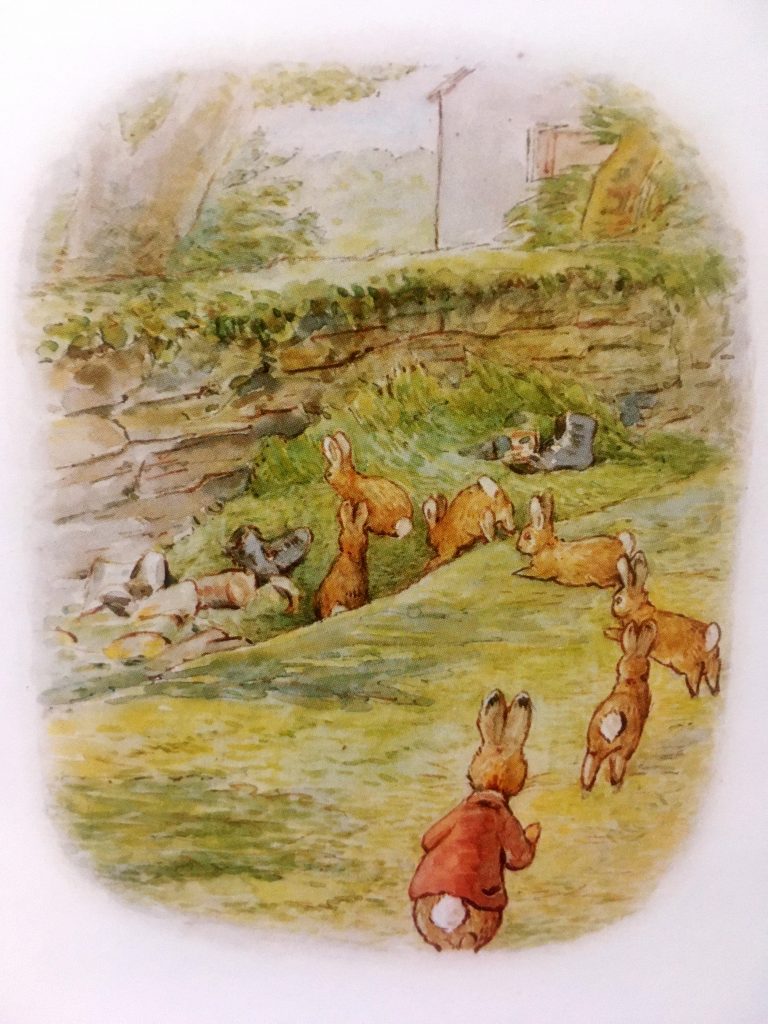

“Flopsy Bunnies went across the *field to a *rubbish *heap, in the *ditch outside Mr. McGregor’s garden.”
フロプシーの子どもたちは、野原を横切ってゴミ山へ行きました。そのゴミ山は、マクレガーさんの庭の外側にある水が流れる穴の中にありました。
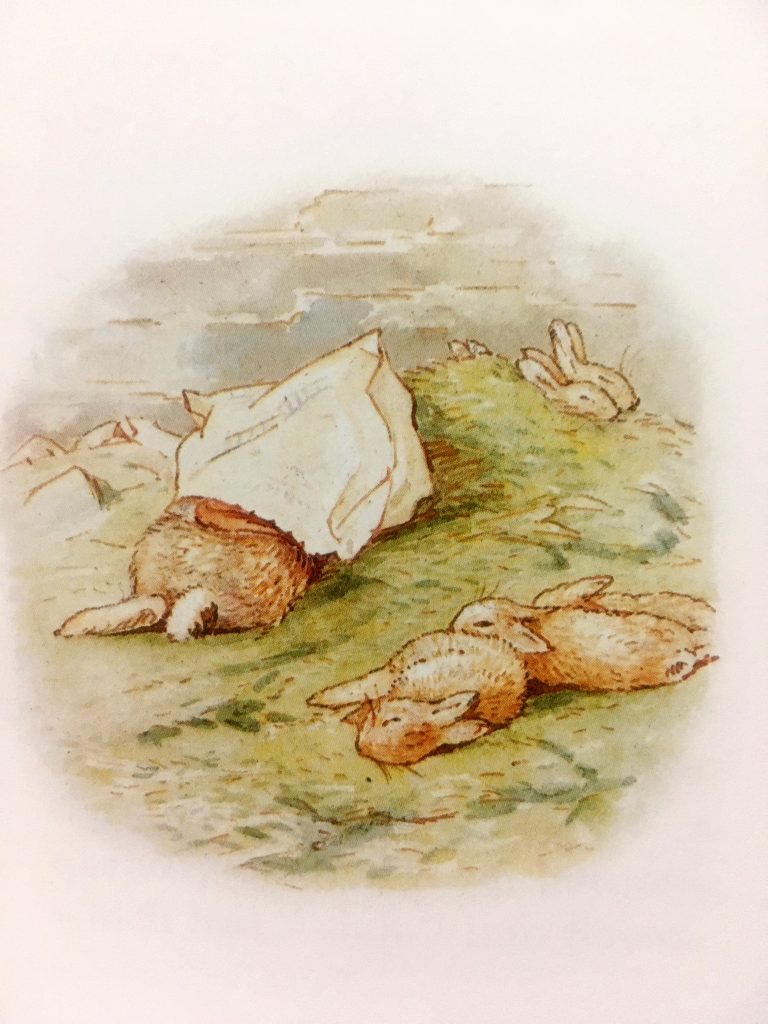

“THE Flopsy Bunnies simply *stuffed lettuces.”
フロプシーの子どもたちは、これ以上食べられないくらいレタスを食べました。
“*By degrees, one after another, they were *overcome with *slumber, and lay down in the *mown grass.”
徐々に、1匹、もう1匹と、眠気に負けて、刈られた草の上に横になりました。
“Benjamin was not so much overcome as his children.”
ベンジャミンは、子どもたちほどは、眠気に襲われませんでした。
“Before going to sleep he was *sufficiently wide awake to put a paper bag over his head to keep off the flies.”
眠りにつく前に、ベンジャミンは十分に目を開けてハエ除けのために頭に紙袋をかぶせました。
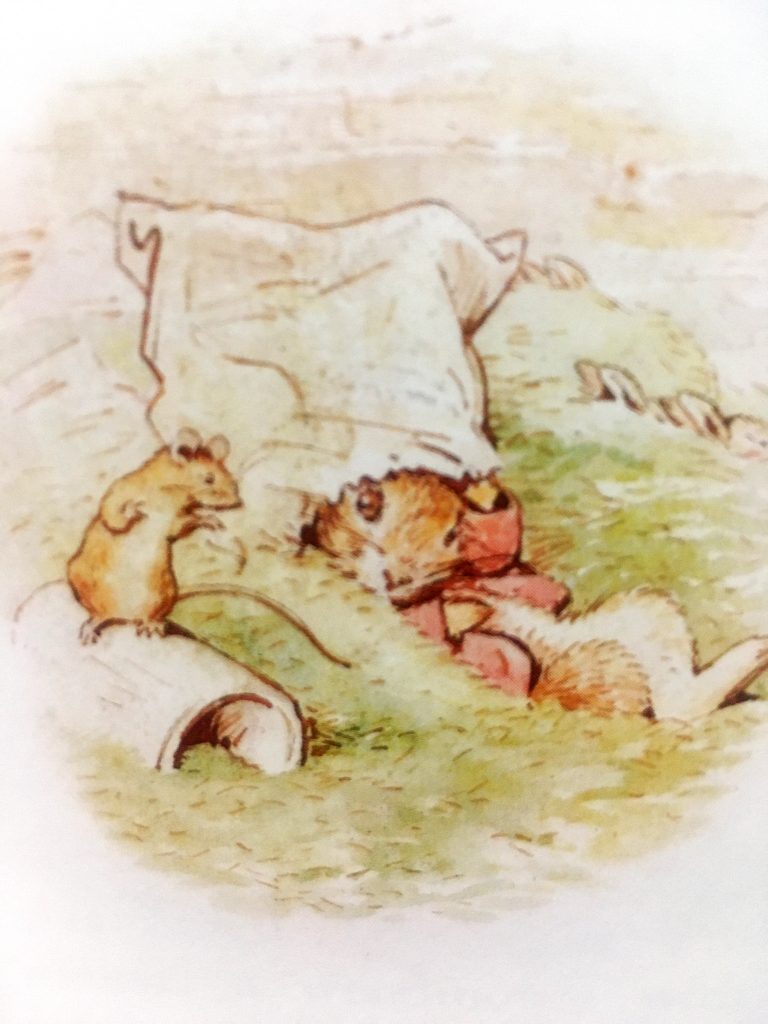

“A little old mouse rustled across the paper bag, and *awakened Benjamin Bunny.”
小さくて年を取ったネズミが紙袋の上を音を立てながら横切って、ベンジャミンを起こしてしまいました。
“The mouse apologized *profusely, and said that she *knew Peter Rabbit.”
そのネズミは大いに謝って、彼女はピーターラビットをよく知っていると言いました。
“WHILE she and Benjamin were talking, close under the wall, they heard a heavy *tread above their heads;
壁ぎわで、彼女とベンジャミンが話していたとき、頭の上で重たい足踏みが聞こえました。
and suddenly Mr.McGregor emptied out a *sackful of lawn mowings right upon the top of sleeping Flopsy Bunnies!”
問題①
Mr.McGregor emptied out a *sackful of lawn mowings right upon the top of sleeping Flopsy Bunnies!"

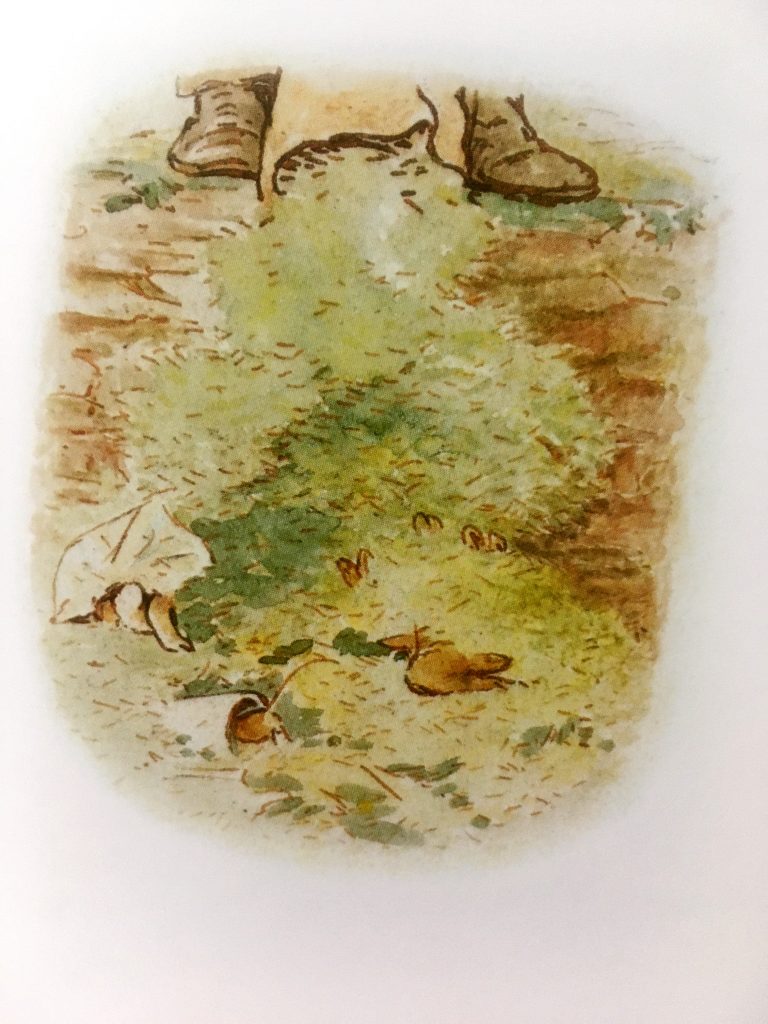

この絵本で学べること
受動態(be動詞+過去分詞)
“They had a large family, and they were very *improvident and cheerful.”
彼らは(フロプシーとベンジャミン)、数多くの子どもが出来て、子どもたちは呑気でにぎやかでした。
“I do not remember the separate name of their children; they were generally called the “Flopsy Bunnies”
私は、子ウサギそれぞれの名前を覚えていませんが、子ウサギたちは“フロプシーの子だもたち”と呼ばれていました。


「子ウサギたちは“フロプシーの子だもたち”と呼ばれていました。」受動態は、「be動詞+過去分詞」で表現することが出来ます。be動詞:were、”call”の過去分詞:calledが使われていますね!


過去分詞とは、何ですか?


過去分詞とは、”動詞を形容詞の役割に変えた単語の事”です。


“called”は、”call”の過去形と同じ形ですが、動詞ではなく、形容詞として使われるんですね。


そうですね。過去分詞は、形容詞の役割を持つため、状態の意味として使うことが出来るんですよ。


状態を表すんですね。


そうです。”they were generally called the “Flopsy Bunnies”の場合は、「こどもたちは、フロプシーの子どもたちと呼ばれている状態だったと捉えましょう。
過去進行形(be動詞+ing)
“WHILE she and Benjamin were talking, close under the wall, they heard a heavy *tread above their heads;
壁ぎわで、彼女とベンジャミンが話していたとき、頭の上で重たい足踏みが聞こえました。


「彼女とベンジャミンが話していたとき」
過去進行形は、「be動詞の過去形+現在分詞」で表現することが出来ます。be動詞の過去形:were、現在分詞:talkingが使われていますね!


be動詞+分詞は、受動態で教わりました!


鋭いですね!現在分詞も過去分詞も、動詞を形容詞の役割に変えた単語です。


現在分詞は現在の事を表して、過去分詞は過去の事を表しますか?


現在分詞の”現在”は、時間的な意味での現在ではないんですよ。今回の場合は、過去進行形で使われているので、過去の出来事ですよね。


そうなんですね。現在分詞も過去分詞も動詞を形容詞の役割に変えるのであれば、見分け方はありますか?


現在分詞は、動作の主体が何かをしている様子を表し、過去分詞は、動作の主体が何かの状態になっている様子を表しますよ。
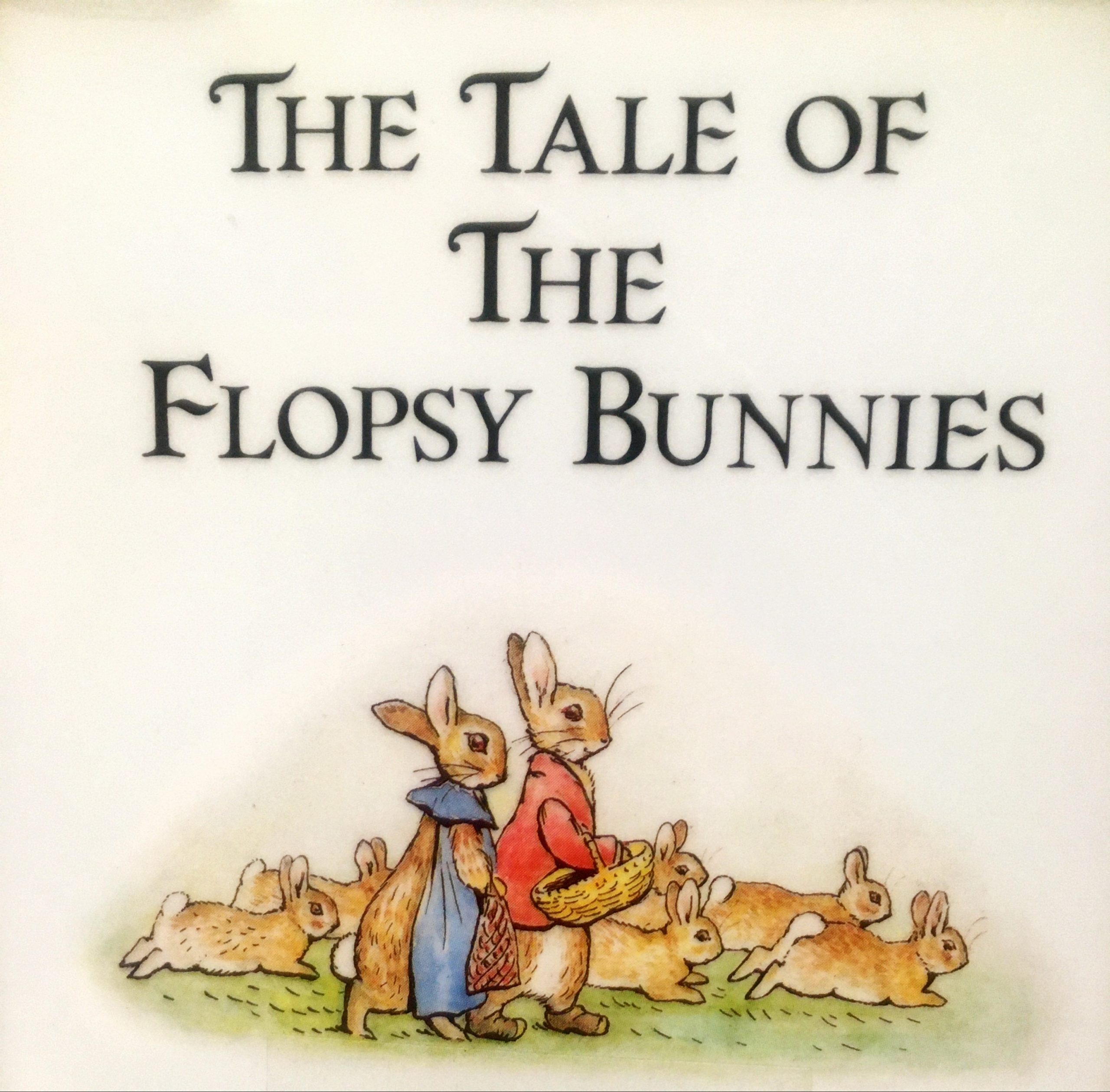



コメント